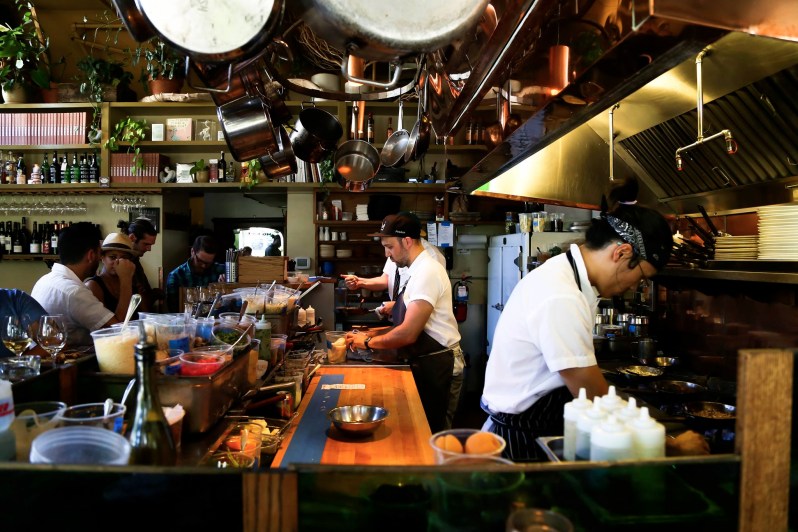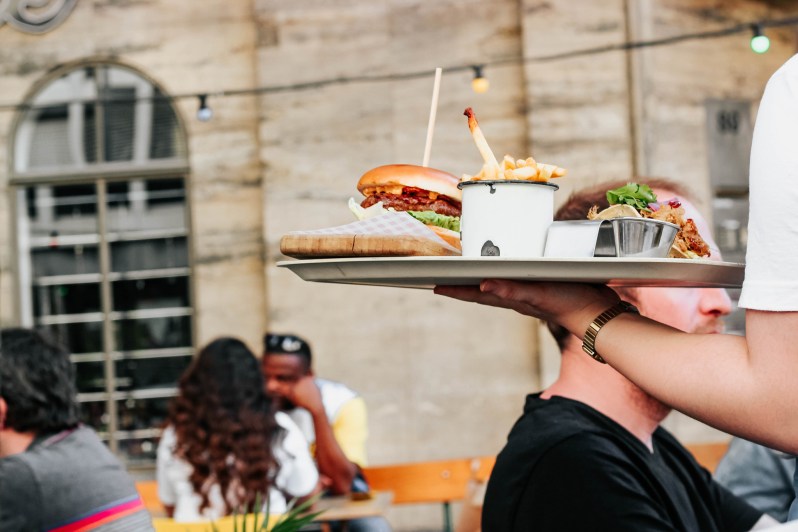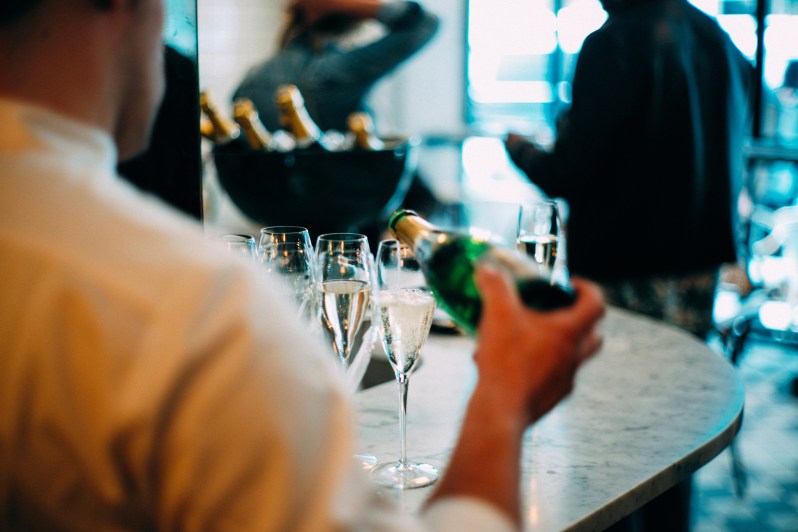Anybody who’s worked in the restaurant and bar arena knows that it can be a downright pressure cooker. Things get busy, guests get heated (or wasted, or entitled, etc.), and you’re juggling multiple orders, tasks, plates, cocktails, and special requests. It’s a lot and can lead even the best industry types into dark mental and physical territory.

But there are ways to keep your sanity in this demanding world, some simpler and more overlooked than others. Chris Leimena has worked at some of the busiest, most celebrated restaurants in Portland, both front of house and in the kitchen. He’s done quality time at Higgins, Langbaan, Le Pigeon, and more. He even worked at Thomas Keller’s Per Se in New York. Presently, he’s tending bar at Les Caves, a venerable wine bar on the east side of the Rose City.
“During work, I think it’s important to remember that it’s just cooking or just waiting tables,” Leimena says.
He says staying sane is two-fold, with at-work and at-home facets. “During work, I think it’s important to remember that it’s just cooking or just waiting tables,” Leimena says. “I always want to do my best and continue to grow but without over-inflating the importance of what I do. Most people get into this for the fun and fast pace. Once you take it too seriously, it removes the positive benefits of the job, affects your mood, and has negative effects on the guest experience.”
Leimena, who trained at the Culinary Institute of America, reminds himself often that what he does is a series of simple tasks that he’s practiced countless times.
Away from it all, Leimena suggests checking out completely. “Exercise works best but hobbies work, too,” he says. “Some of the most successful chefs in Portland are championing exercise and sobriety.” He adds that there are restaurant running and biking clubs. Many of his colleagues photograph, paint, do ceramics, rock climb, practice yoga, and more. “These jobs can be stressful and it’s important to balance the intensity with hobbies and some endorphin relief. Otherwise, you just drink and smoke weed all the time.”

Older and wiser these days, Leimena still enjoys a good drink but also champions a hearty late lunch, tons of water, and expertly-timed coffee breaks. Some shifts, though, persist into the wee hours. “When you have to be on all night long, whether talking to guests or preparing elaborate food, sometimes you just need a moment with a cheap beer,” he says. “Sip a drink you don’t have to think about while you don’t think about anything.”
Strangely, I miss the job more than I would have imagined.
This writer used to work double shifts at a popular Willamette Valley winery. The place would get hammered by large tour busses, on top of an already full weekend of heavy tasting room traffic. A coworker (or two, if we were lucky) and I would pour flights for scores of visitors, sneaking in occasional vineyard tours and trips to the kitchen to assemble a cheese platter. We’d shut down shop promptly at five, exhausted, only to prep for a wedding later that evening and another shift behind the bar.
Strangely, I miss the job more than I would have imagined. There’s a performance aspect to it, and as a writer especially, I learned to greet this with competitive glee. Presenting a wine almost always involves a backstory and I would go out of my way not to explain it the same way twice — not just to avoid feeling like a broken record but as a personal challenge. It kept me engaged and fine-tuned my skills as an orator. Usuals would take notice, signing up for the wine club or buying wine by the case instead of just the bottle.

On the physical side, good diet can’t be overlooked. If a big shift is coming your way, pack in the calories before, even if you’re not that hungry. When you can sneak in a snack, go for easy, healthy, energy-giving options like dried fruit, trail mix, or energy bars. You’ll likely be swimming in leftovers or staff meals but you can up their health content (if need be) with quick additions like fresh veggies or flexible items like hummus or avocado that can substitute for fattier proteins.
The worst shifts took the joy out of wine, something I never thought possible. After a general break from the stuff (every post-shift glass did less to unwind than remind me of an unruly customer), I rekindled a healthy relationship with Pinot Noir by changing its context. I skipped the after work pour with coworkers (healthy as some commiserating can be) and would instead bring some wine home to enjoy while cooking, or have with my eyes closed and ear buds in, blasting a favorite record. Barkeeps and chefs can do much the same, by removing their craft from its typically hectic surroundings and seeing it in a changed, decidedly more relaxing light.
A great way to perpetuate sanity in the food, drinks, and hospitality arena is to learn from your worst patrons. You know, the ones who answer their phone while you’re explaining a dish, tip with coupons instead of cash, or get shit-faced and obscene in your establishment. Catalog these traits and mannerisms and vow to never replicate them. This is implied for seasoned industry types, but it never hurts to remind. After all, your next Negroni might be concocted by a poor soul who’s already been through the ringer that shift.
Class begets class.


